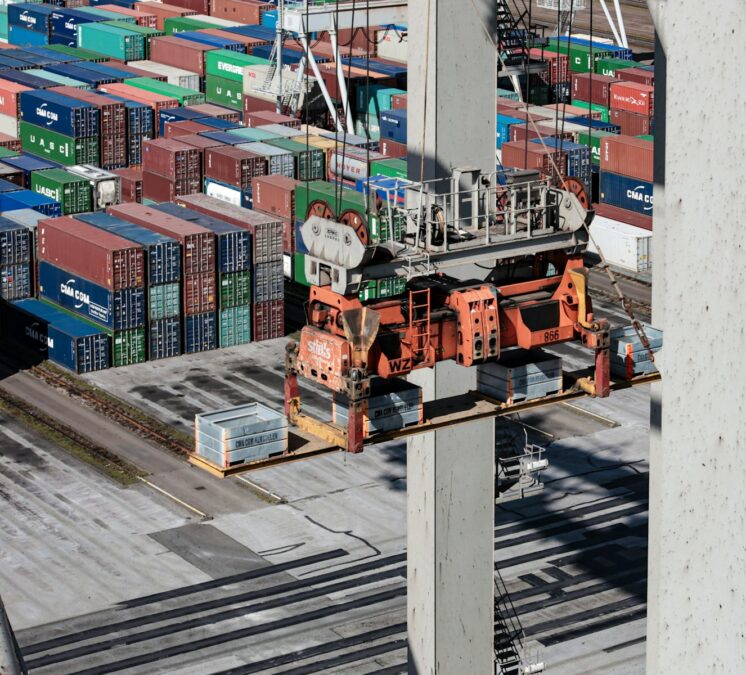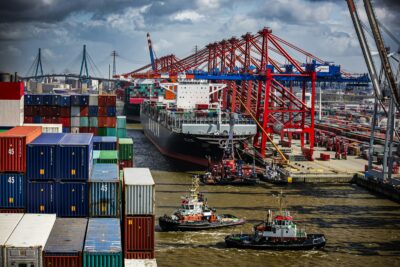Revolutionizing Logistics with Blockchain
Blockchain technology has the potential to revolutionize logistics operations by enhancing accuracy and efficiency throughout the supply chain. In regions like Saudi Arabia and the UAE, where logistics play a crucial role in economic development, the adoption of blockchain-based solutions offers numerous benefits. One of the key advantages of blockchain is its ability to improve the accuracy of supply chain management processes. By creating an immutable and transparent ledger of transactions, blockchain ensures that every step in the logistics process, from inventory management to transportation, can be tracked and verified in real-time. This level of transparency not only reduces the risk of errors and discrepancies but also enables companies to identify and address issues proactively, thereby improving overall operational efficiency.
Streamlining Operations and Reducing Costs
Blockchain technology streamlines logistics operations by reducing paperwork, eliminating manual tasks, and optimizing resource allocation. Smart contracts, a feature of blockchain, automate contractual agreements between parties involved in logistics transactions, such as suppliers, carriers, and distributors. These self-executing contracts enforce predefined rules and conditions, such as delivery schedules and payment terms, without the need for intermediaries. As a result, transactions can be completed faster and with greater accuracy, leading to cost savings and improved efficiency. In Riyadh and Dubai, where companies are constantly seeking ways to optimize their logistics processes, blockchain offers a transformative solution that can drive significant improvements in operational performance and competitiveness.
Enhancing Supply Chain Visibility and Traceability
Blockchain technology enhances supply chain visibility and traceability by providing a secure and transparent record of product movements and transactions. Through blockchain-enabled platforms, companies can track the location, condition, and ownership of goods as they move through the supply chain. This level of transparency not only improves decision-making and risk management but also enhances trust and collaboration among supply chain partners. In the fast-paced logistics industry, where delays and disruptions can have significant consequences, blockchain enables companies to respond quickly to changing conditions and minimize the impact of unforeseen events. By leveraging blockchain, businesses can build more resilient and agile supply chains that are better equipped to meet the demands of today’s global marketplace.
Driving Innovation and Sustainability
Blockchain technology drives innovation and sustainability in the logistics industry by enabling new business models and fostering collaboration among stakeholders. In a blockchain-powered ecosystem, companies can explore innovative solutions such as decentralized marketplaces, automated logistics networks, and sustainable supply chain initiatives. By leveraging blockchain, businesses in Saudi Arabia and the UAE can reduce waste, minimize environmental impact, and optimize resource utilization, thereby creating more sustainable and efficient logistics operations. Moreover, blockchain enables greater transparency and accountability, which are essential for building trust and confidence in supply chain processes.
Empowering Businesses and Consumers
Blockchain technology empowers businesses and consumers by providing greater visibility, control, and security over logistics operations. Through blockchain-enabled platforms, businesses can track the movement of goods in real-time, monitor environmental conditions, and ensure compliance with regulations and standards. This transparency not only improves operational efficiency but also enhances customer satisfaction and loyalty. Consumers, on the other hand, can verify the authenticity and integrity of products, trace their origins, and make more informed purchasing decisions. By embracing blockchain, businesses can build trust with consumers and differentiate themselves in the market based on their commitment to transparency, integrity, and sustainability.
Ensuring Data Integrity and Security
One of the most significant advantages of blockchain technology in logistics is its ability to ensure data integrity and security. Traditional centralized systems are vulnerable to hacking, fraud, and data manipulation, which can compromise the integrity of supply chain data and expose businesses to significant risks. In contrast, blockchain technology utilizes cryptographic techniques and decentralized consensus mechanisms to secure transactions and prevent unauthorized access or tampering. Each transaction is recorded on a distributed ledger, which is immutable and transparent, ensuring that data remains secure and trustworthy throughout its lifecycle. This level of security is particularly important in industries like logistics, where sensitive information, such as shipment details, financial transactions, and compliance documents, needs to be protected from cyber threats and unauthorized manipulation.
#Blockchain #Logistics #Accuracy #Efficiency #SaudiArabia #UAE #Riyadh #Dubai #SupplyChainManagement #ArtificialIntelligence #ChangeManagement























